The Organics Management Law brings big changes in the ways residents and businesses get rid of organic trash

Senseless waste: Getting dumped sucks. Just remember—you’ve still got a lot to offer someone else. Photo: Olivia Vanni/The Herald
By Julie Titone, Everett Herald. January 17, 2023. Organic matter makes up 23% of the materials going into Washington’s landfills. For residential trash alone, the figure is 33%.
Much of that organic matter is food waste that was edible when it was tossed out.
Decomposing food releases methane, a heat-trapping gas that’s 25 times as potent as the carbon dioxide that spews from tailpipes. Each year, the state’s landfills produce emissions equivalent to the annual exhaust of 320,000 cars.
Meanwhile, nearly one in nine Washingtonians may suffer from food insecurity.
A new state law in Washington is taking on all of these problems.
Signed into law by Gov. Jay Inslee last year, the 2022 Organics Management Law—which went into effect on Jan. 1—is expected to eventually change food waste collection and disposal statewide.
“Food waste is the largest landfill component by tonnage. It’s heavy. And we have hungry people,” says Chery Sullivan, Washington Department of Ecology policy section manager, who oversees implementation of the 2022 Organics Management Law.
Costing $6.83 million over six years, the new law amends or adds sections to multiple existing laws. In addition to the state Department of Ecology, it involves the Conservation Commission, Department of Agriculture, Department of Enterprise Services, counties and cities, residential and non-residential customers.
Using 2015 as a baseline, the law aims to cut the amount of landfilled edible food by 20% by 2025, and cut landfill-disposed organic material by 75% by 2030.
Other organic materials, including inedible food and yard waste, will be processed at composting facilities, anaerobic digesters or used for vermiculture (worm-based composting) and emerging technologies.
The law gives state agencies through 2027 to make large changes. Ahead lies much rule-making that will affect residents, waste haulers, compost facilities, land-use plans and more.
Making giving away food easier
Embedded in the 2022 Organic Management Law is a Good Samaritan Food Donation Law. Among other provisions, it gives businesses more leeway to donate prepared meals without assuming liability.
Similar liability protections have arrived at the federal level, with passage of the Food Donation Improvement Act. Congress has yet to pass the Food Date Labeling Act, which would standardize expiration dates for perishable food.
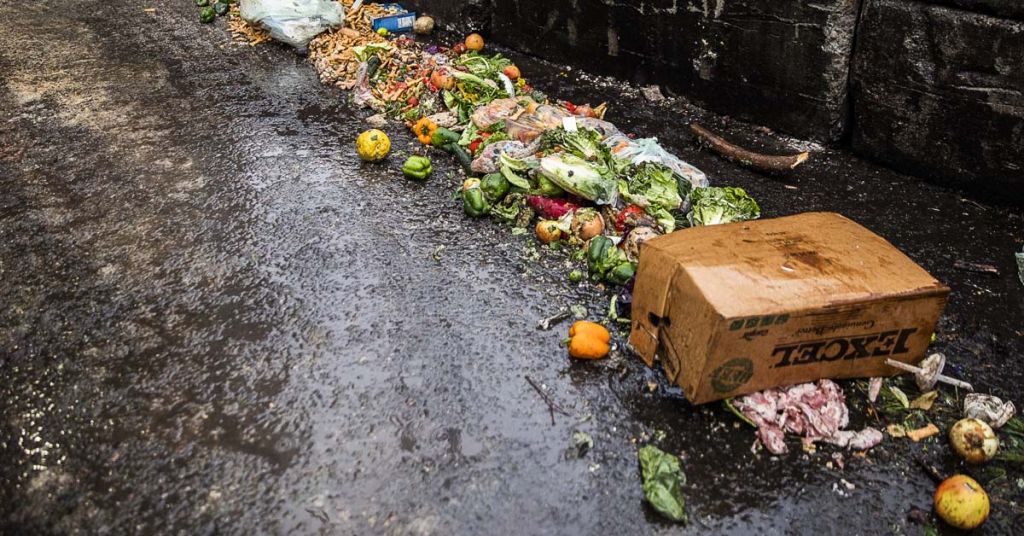
Not all bad: Food waste lines the edge of the tipping building at Cedar Grove Composting in Everett. Photo: Olivia Vanni/The Herald
Under Washington’s new rules, stores and distributors can contribute packaged food even if it’s beyond its “best buy” date.
It’s an important change, says Mark Coleman, media officer for Foodline.org, which serves 17 Western Washington counties. That charity, along with Northwest Harvest, manages the relationships between grocers and food banks, and between restaurants and shelters where meals are served.
“The cardinal rule of food production is you have to have enough on hand to meet demand,” says Coleman, explaining why farmers, distributors and grocers often end up with food they can’t sell.
Donating unsold inventory reduces disposal fees and provides tax deductions.
As a former meteorologist, Coleman knows the peril posed by landfill emissions: “I’m always trying to get people to think about methane.”
In addition, the new law allows packaged or prepared food to be sold at a discount (rather than given away) and still merit a tax deduction.
Trash from Puget Sound to Klickitat County
Ecology’s Use Food Well Washington Plan is a road map to building a better food system through waste reduction. It was key to passage of the 2022 Organics Management Law and is central to its execution.
Perhaps the most significant of the 30 recommendations in the 121-page food plan is the creation of the Washington Center for Sustainable Food Management.
Known simply as the Food Center, it will have a three-member Department of Ecology staff and be operational by 2024, according to Sullivan.
[perfectpullquote align=”full” bordertop=”false” cite=”” link=”” color=”” class=”” size=””]Ecology argues implementing Use Food Well recommendations will save $1 billion annually.[/perfectpullquote]
The Use Food Well plan calls for actions ranging from broad (increase markets for “imperfect” produce) to specific (require school recess before lunch, because hungry kids leave less food on their plates).
To understand how much food is wasted, Ecology uses contractors to sample and weigh trash being sent to landfills.
The latest Waste Characterization Study sampled trash from sites in 10 counties in 2020 and 2021.
The sites included Snohomish County’s Southwest Recycling and Transfer Station, where waste is collected before being shipped by trainload to Klickitat County’s Roosevelt Regional Landfill.
Local anxieties
There are plenty of legislative discussions ahead about organics and recycling in general, says Heather Trim, executive director of Zero Waste Washington.
“There are 10 to 12 waste-related bills a year,” says Trim.
Zero Waste’s 2023 legislative priorities include the Washington Recycling and Packaging Act, plus bills related to plastics reduction and battery recycling.
Trim and other environmentalists lobbied for the Organics Management Act.
Local governments, not so much. The Washington Association of Counties took a neutral stand.
Paul Jewell, the association’s policy director, objected to the lack of funding to support major changes in how and where organic material goes.
“It will require huge investments in infrastructure,” Jewell said at a Senate hearing. “Planning, siting and constructing solid waste facilities is not easy, and in any event it takes years to complete. California has had to increase fees by as much as 70% to comply” with similar requirements.
Most Washington cities and counties have access to state and federal grants in some form, says Sullivan. These may support things like solid waste management plan updates and public education.
Ecology is working on an outreach “toolkit” to spread the word about organic waste management.
Still, Sullivan agrees the Organic Management Act will burden local governments.
Ecology will ask legislators for more grant funding to help, arguing that implementing all the Use Food Well recommendations will save $1 billion annually.
Julie Titone is an Everett writer who can be reached at julietitone@icloud.com. Her stories are supported by The Herald’s Environmental and Climate Reporting Fund.



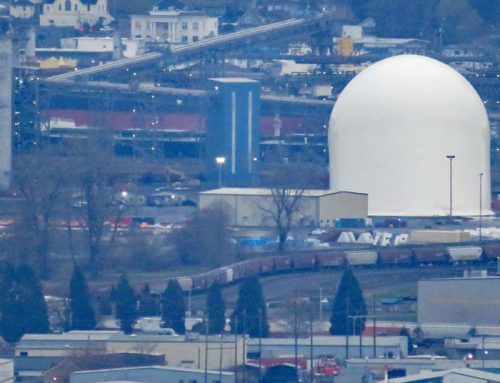


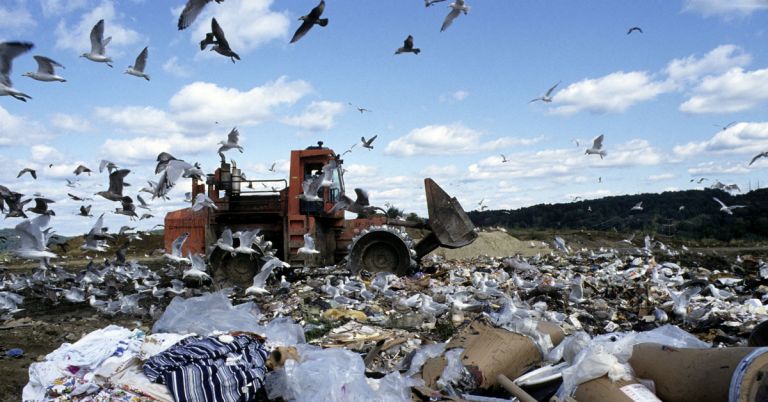
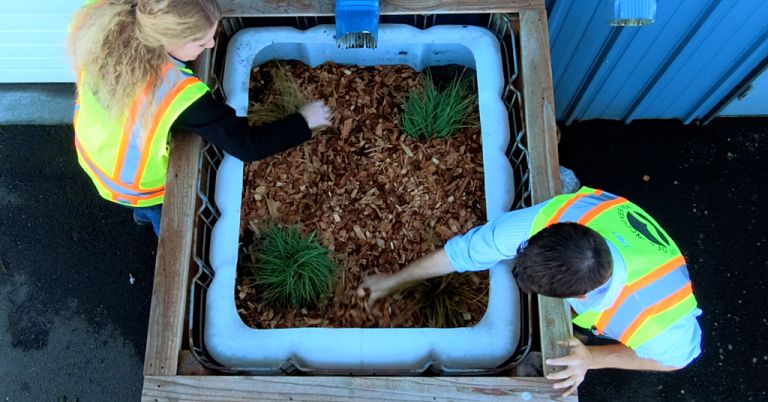
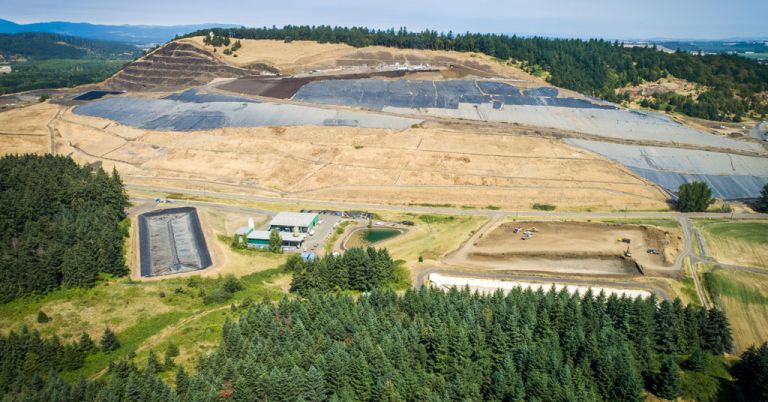
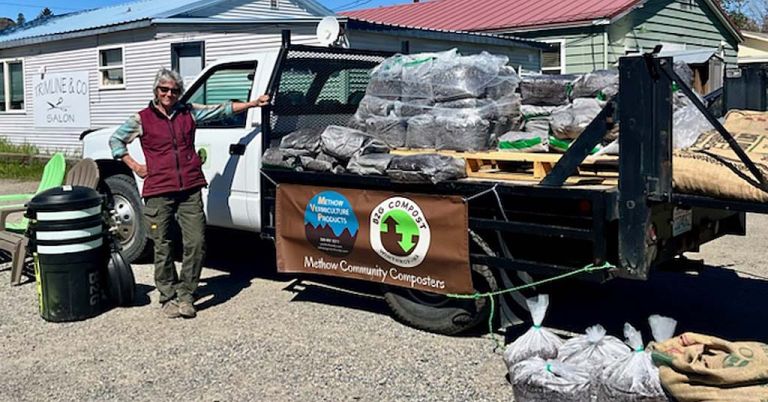


Way to go Washington. Oregon needs to catch up. Great, green story. This will be good for the planet and people.
The Washington bill seems to me to start by focusing on the wrong end of the problem – on disposal, instead of overproduction and wasteful inventory practices. This sentence is key: “The cardinal rule of food production is you have to have enough on hand to meet demand”. The WA rules will continue to reward producers and retailers for putting out more food than their local market can consume, and will now incentivize that overproduction through tax deductions.
In Oregon, where those kinds of food donations are already incentivized by the state, the local food bank where I volunteer “benefits” from the unsold cakes, cookies, rolls, and breads churned out each week at the local stores. At holiday times, even more comes in because stores buy far more hot dog & burger buns than the entire community ever buys. Halloween, Christmas, and 4th of July? Dozens and dozens of plastic clamshells pour in, filled with decorated cookies. At Christmas we’re still putting out orange, pumpkin shaped cookies. Why aren’t states that claim to care about food prices AND methane gas from food disposal asking why stores don’t rationalize their inventory to reduce waste from the START instead of looking for ways to stop the backend issues?
And the chilling idea that sending kids out to get hungry at recess before meals is another idea that no one seems to have challenged. We have an obesity epidemic among children. We’re now going to push the “clean plate” club at schools feeding muffins, cheeseburgers, and mac and cheese to kids by trying to make them hungrier before those foods are available to them? While also ignoring evidence showing that even brief exercise after meals helps with blood sugar control. Oh – and it’s also likely that those kids in the WA “clean plate club” will experience a blood sugar crash post-lunch, reducing their ability to focus.
SO many unaddressed issues in the WA bill. What a shame. Good intentions, bad outcome.